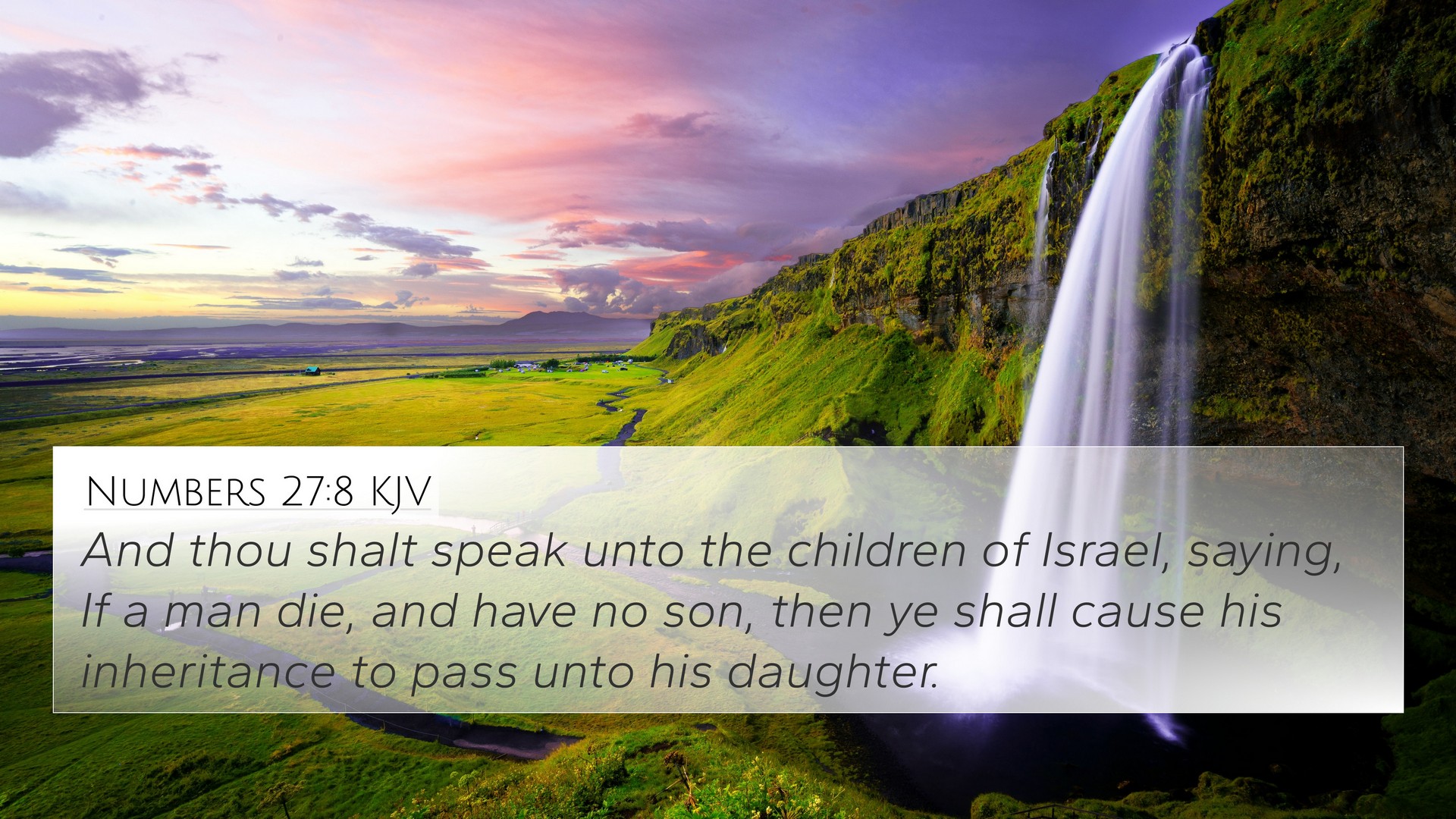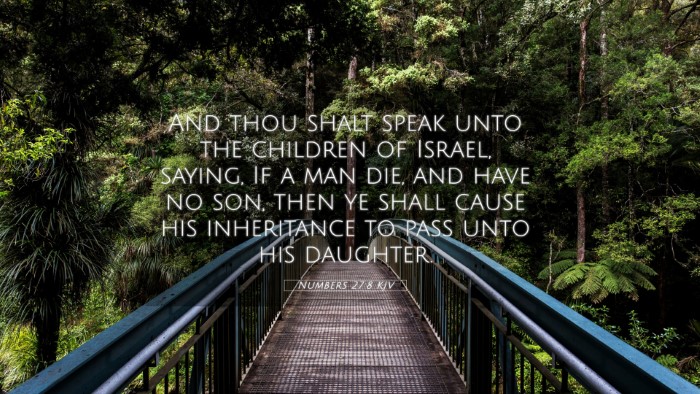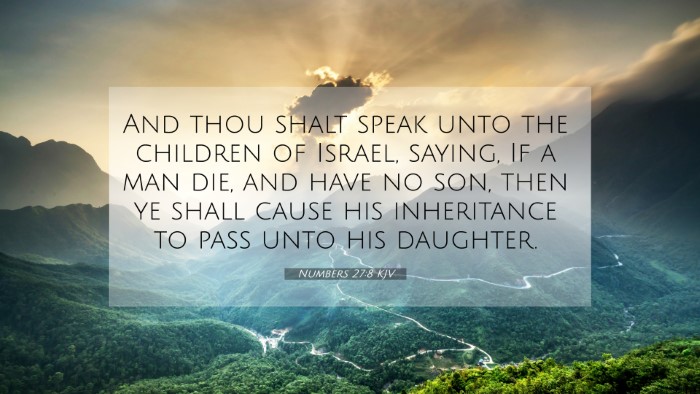Understanding Numbers 27:8
Numbers 27:8 states: "And thou shalt speak unto the children of Israel, saying, If a man die, and have no son, then ye shall cause his inheritance to pass unto his daughter." This verse addresses the issue of inheritance in the context of ancient Israelite laws, illustrating God's provision for equitable distribution of property, even in the absence of male heirs.
Contextual Analysis
This verse occurs within a broader legal framework established in the Book of Numbers, which outlines the guidelines for ensuring justice and fairness among the tribes of Israel. The specific context is the daughters of Zelophehad, who sought their rightful inheritance following their father's death without male heirs.
Commentary Insights
- Matthew Henry: This esteemed commentator highlights the significance of God’s justice and His recognition of women's rights in matters of inheritance. He emphasizes that God’s directive was a radical departure from societal norms, reflecting divine fairness.
- Albert Barnes: Barnes notes the practical implications of this command, suggesting it was meant to secure property rights within tribes. This measure aimed to prevent the fragmentation of inheritance and maintain tribal integrity.
- Adam Clarke: Clarke provides a historical lens, asserting that this verse illustrates the inclusiveness of Yahweh’s law. He discusses how the command to allow daughters to inherit demonstrates God’s care for all people, regardless of gender.
Thematic Connections
This verse not only deals with inheritance but also showcases God's concern for justice, equity, and the social order within the community. The theme is recurrent throughout the Scriptures, illustrating the overarching biblical principle of caring for the vulnerable and ensuring fairness.
Related Cross-References
To deepen the understanding of Numbers 27:8, the following Bible verses can be examined:
- Deuteronomy 21:15-17: Discusses inheritance rights for the firstborn son, affirming family legacy ownership.
- Joshua 17:3-6: The daughters of Zelophehad receive their inheritance, reflecting the application of God’s command.
- 1 Corinthians 12:12-14: Highlights the unity and diversity in the body of Christ, analogous to the equitable treatment presented in Numbers 27:8.
- Galatians 3:28: Affirms equality in Christ, where gender distinctions do not affect inheritance in faith.
- Proverbs 31:16: Highlights the virtues of wise and capable women, echoing the empowerment seen in Numbers 27:8.
- Luke 10:38-42: Shows Jesus valuing the role of women, exemplifying their position in God’s plan.
- Psalms 68:5: "A father of the fatherless, a defender of widows," emphasizing God's concern for marginalized individuals in society.
- Matthew 21:31: Jesus speaks about the least of society receiving the Kingdom, paralleling the importance of the lesser-known figures like the daughters of Zelophehad.
- Revelation 21:7: "He who overcomes will inherit these things," which reflects the larger theme of inheritance in God’s Kingdom.
- Romans 8:17: Discusses being heirs of God and joint heirs with Christ, showing the ultimate fulfillment of God's plan for all believers.
Tools for Cross-Referencing
To explore and connect the themes of Numbers 27:8 with other scriptures, several tools are available:
- Bible Concordance: A text that helps locate verses and themes throughout the Bible.
- Bible Cross-Reference Guide: A resource designed to point out related scriptures for deeper studies.
- Cross-Reference Bible Study: Methods to explore connections between verses to strengthen understanding.
- Bible Reference Resources: Extensive materials available for study groups and personal insights.
- Bible Chain References: Systems that link verses in a thematic flow for easy navigation of themes.
Final Thoughts
Numbers 27:8 emphasizes the importance of recognizing God's ordinances, which advocate for social justice and the fair treatment of all individuals. As we engage with this text and its connections, we gain a richer understanding of God’s will concerning inheritance, equity, and the value of women in beloved biblical history.


